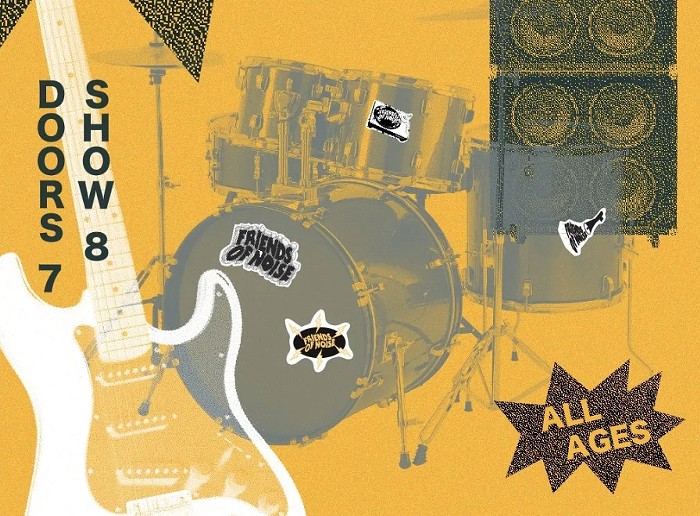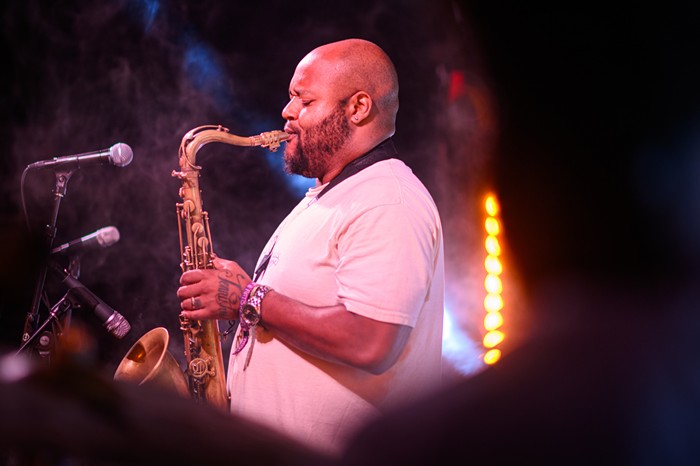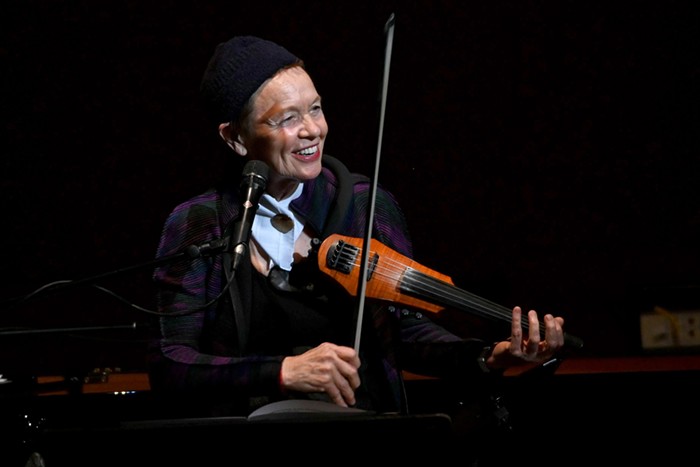IT'S NOT HARD to recall the American landscape in the months following the September 11 terrorist attacks. Stars and stripes regalia became omnipresent. Any lingering anti-country sentiment was hushed instead of hollered. A lot of people approved of George W. Bush. It was a weird time to hear five Midwestern kids bark tuneless post-hardcore scorchers about corporate greed, the socio-economic horrors of suburban sprawl, and the death of the American dream.
But when Desaparecidos' debut Read Music/Speak Spanish was released in February 2002, a brooding, swoopy-haired guy named Conor Oberst unintentionally ignited a sub-movement of floundering emos to rally against blind patriotism. Ten years later, he's prolonged those ideas with another, less-aggressive project. They're called Bright Eyes. Ever hear of them?
"It just wasn't right back then," explains Desaparecidos guitarist Denver Dalley, "not only scheduling wise, but it felt like we'd gotten away from the soul of the band of having fun and playing. There were expectations and it started to feel like a business. We'd kind of always been the anti band; this kind of defiant band."
The schedules have finally aligned, and Desaparecidos right-time-right-place aura finds itself firmly embedded in a short-run reunion tour along the West Coast, 10 years removed from the album that made them shoulda-beens. On the heels of their reunion tour announcement, the band also released two brand-new songs—"MariKKKopa" and "Backsell"—written and recorded during one of their first few practices back together.
Dalley insists he was most excited simply for band practice again, to revisit the energy Desaparecidos generated so many years back. He was pretty shocked to find that they'd essentially jumped back in where they left off.
"It felt totally natural," says Dalley. "I don't think we've matured. I think we're the same mentality. We haven't progressed... in a good way."
The release of "MariKKKopa" has already helped Desaparecidos achieve the kind of controversial political skewering that Oberst is now universally known for. Taking aim at Sheriff Joe Arpaio of Maricopa County in Arizona—who proudly relished being compared to the KKK for his rampant enforcement of Arizona's anti-immigration laws—the track is a scathing, screeching punk ode written from the perspective of a not-so-farfetched alien lynching posse run by Arpaio. "Backsell," on the other hand, focuses on the ridiculousness of major label swarming and radio backselling to Desaparecidos' door.
"When we put out that first album, there was a lot of that," says Dalley. "We'd been talking about doing that song and had that title like seven years ago. It does still hold true. We've always been more kind of the DIY mentality."
All five members of the band, according to Dalley, entertained preserving the one-album-and-out mystique, allowing an untarnished legacy to define the band. Ultimately, though, Desaparecidos wanted to give back to those who'd quietly made them contemporary underground legends.
"I feel like a lot of people are really connected with that record and listened to it for a long time," says Dalley. "I want to be able to do that live and have them be able to see it if they want to.
"We're all having fun and we want to do more. There's a very good chance we could record more," he continues. "We're all just kind of waiting to see what happens like everyone else."



















